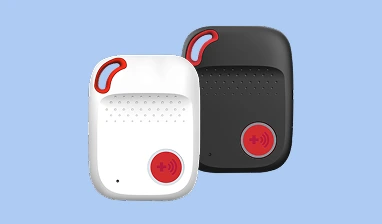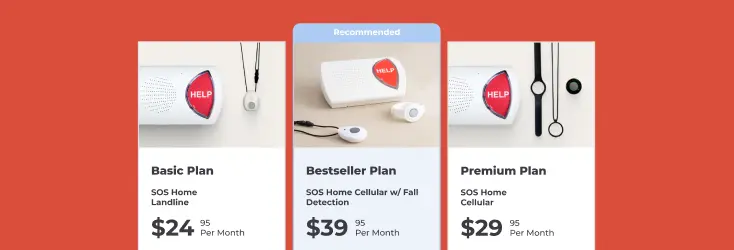Family caregivers supporting aging parents have increased steadily over the past five years. The Johns Hopkins Bloomberg School of Public Health and the University of Michigan’s Institute for Social Research reports that more than 24 million people currently support an aging family member in some capacity, up significantly from 18 million the decade prior. And while family caregivers have a long to-do list of responsibilities, those with kids still living at home have an even longer list of tasks to complete each day.
The Sandwich Generation, or people who are currently caring for both aging parents and children including teens and college aged kids, are at an increased risk of caregiver burnout because they are doing everything for everyone, often leaving themselves feeling exhausted and depleted. If you’re a member of the Sandwich Generation, it’s especially important that you make caring for yourself a priority so that you can avoid caregiver burnout.
Here’s what you need to know.
What Is Caregiver Burnout?
Caregiver burnout is a term used to describe a set of mental and physical health complications that arise out of the constant stress and demands of caregiving. The Cleveland Clinic reports that about 60% of all family caregivers experience caregiver burnout at some point in their caregiving role.
It’s important to note that caregiver burnout can happen to any type of family caregiver, not just the ones who give extensive personal, hands-on care. If you’re a daughter who spends hours each week checking in on your aging parents who live hundreds of miles away, coordinating their transportation to appointments and advocating for their care with their medical team, you are just as susceptible to caregiver burnout as a caregiver who stops by to clean the house, make meals, and help out with personal care daily after work.
Long-distance family caregivers often don’t think that they can experience symptoms of caregiver burnout since they live far away. This can lead to long-distance caregivers living with symptoms for longer and without relief. Caregiving is caregiving, no matter how near or far you are.
Symptoms of Caregiver Burnout
Caregiver burnout can lead to mental and physical health complications that can include:
- Sleep disturbances, including sleeping too much or not enough, as well as insomnia or waking multiple times throughout the night
- Anxiety
- Depression
- Changes in weight or appetite, including eating more than usual or less than usual
- Withdrawing from family and friends, as well as declining social invitations that you normally would have said “yes” to
- Feeling exhausted
- Irritability, anger, and other mood swings that you cannot predict or control
- Feeling overwhelmed and unable to cope
- Changes in concentration, including losing the ability to stay on task while at work or experiencing “brain fog”
- Getting sick more than usual, or staying sick for longer than usual
Warning Signs to Watch For
Symptoms of caregiver burnout don’t necessarily occur overnight. Instead, they sneak into your life slowly and over time. If you can look for symptoms before they get severe, you can begin to implement a plan for some relief.
Here are a few warning signs that might indicate you are careening toward caregiver burnout:
- Losing your temper with your family members, including your partner, kids, or aging parent
- Feelings of resentment toward your aging parent
- Tearfulness that happens quickly and without warning
- Friends reaching out because they haven’t seen you in awhile
- Missing assignments or deadlines at work
- Napping more than usual
- Overplanning and micromanaging your staff at work, your kids, and others in your life
- Waking up in the middle of the night feeling worried or with a racing heart
- Feeling “checked out” when it comes to things you would have normally cared about, including your relationships with your aging parent, kids, and partner
- Unintended weight loss or gain
If you notice any of these signs, or if you just aren’t feeling like yourself, schedule a visit with your primary care physician. It’s never too early to let them know about your family caregiving role and your life stress; they are there to support you and offer suggestions and treatment that can help you remain as healthy as possible.\
Preventing Caregiver Burnout
Members of the Sandwich Generation are not only caregiving for their aging parent, but also for their children. This means you are busy juggling the care needs of at least two people in your family, often leaving not enough time to care for yourself. However, prioritizing self-care and rest are the two best ways that you can prevent caregiver burnout from knocking on your door.
Here are a few habits and routines you can use to reduce your chances of burnout:
- Schedule respite care for your loved one so that you can put aside your caregiving role for a few hours each week. Book respite care through a home care agency or by rallying your other siblings or family members. Mark off a few hours per week so that you can spend that time doing whatever you want, as long as it doesn’t include caregiving.
- Talk to your primary care physician about your caregiving role and caregiver stress. Even if you aren’t experiencing signs of burnout, your physician should still understand that caregiving is a part of your life.
- Schedule regular appointments with a therapist that has experience working with family caregivers. Aim for at least 2 appointments per month, even if you think you don’t need it.
- Consider attending a caregiver support group. Gathering with others who are walking a similar road can be therapeutic, and you’ll often get access to local professionals and resources. Begin your search for local groups by contacting hospitals in the area, as well as libraries and senior living communities.
- Speak with your employer. While you don’t have to give them more details than you’re comfortable with, it can be helpful if they understand your caregiving role and stress. In addition, they might be able to point you in the direction of support systems in place like an Employee Assistance Program (EAP) or Family Medical Leave (FMLA).
- Ask for help. This is often the most difficult part, as it can feel like more of a hassle to give directions about how to help a sibling, friend, or neighbor. However, asking for help with small tasks, like driving your child home from soccer practice or picking up groceries for your aging parent, can free up time and space for you in the long run.
Remember, the best way to cope with caregiver burnout is to prevent it from happening in the first place! Take care of yourself.

















